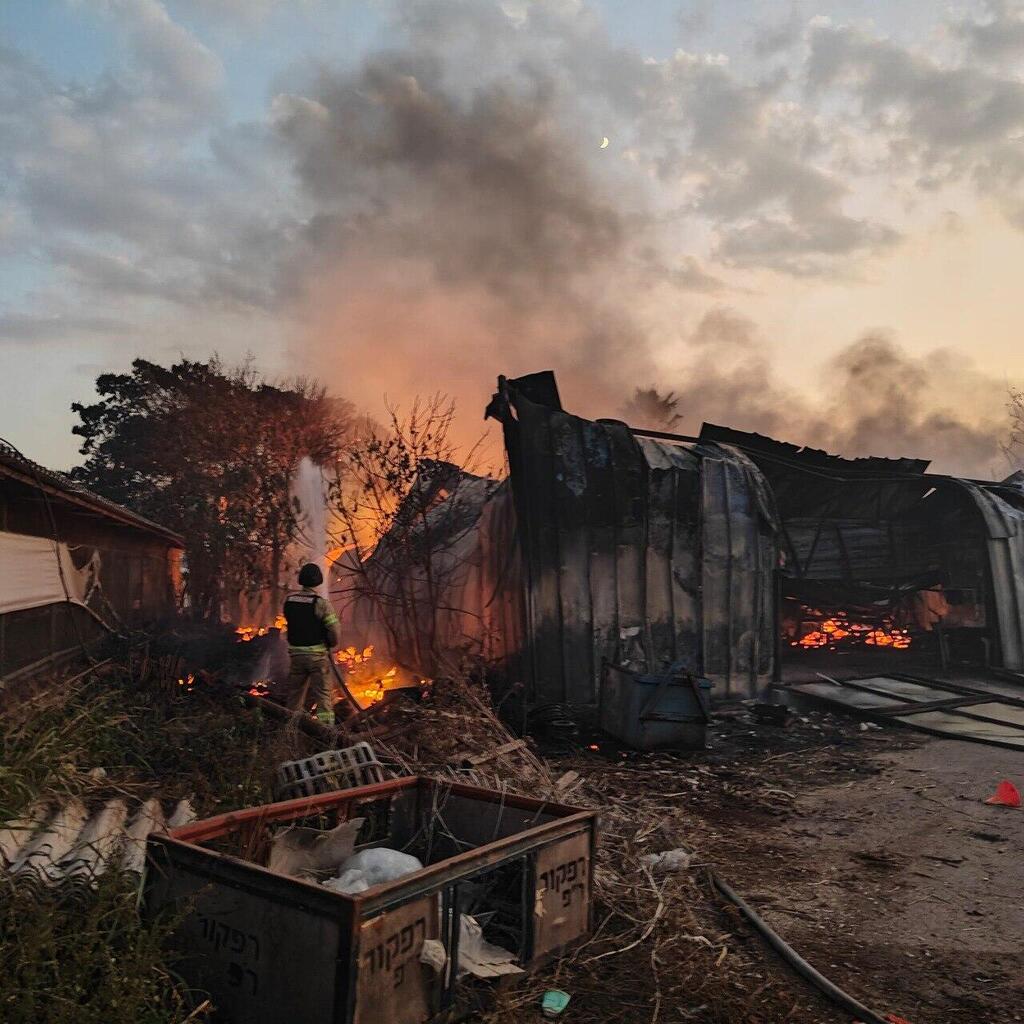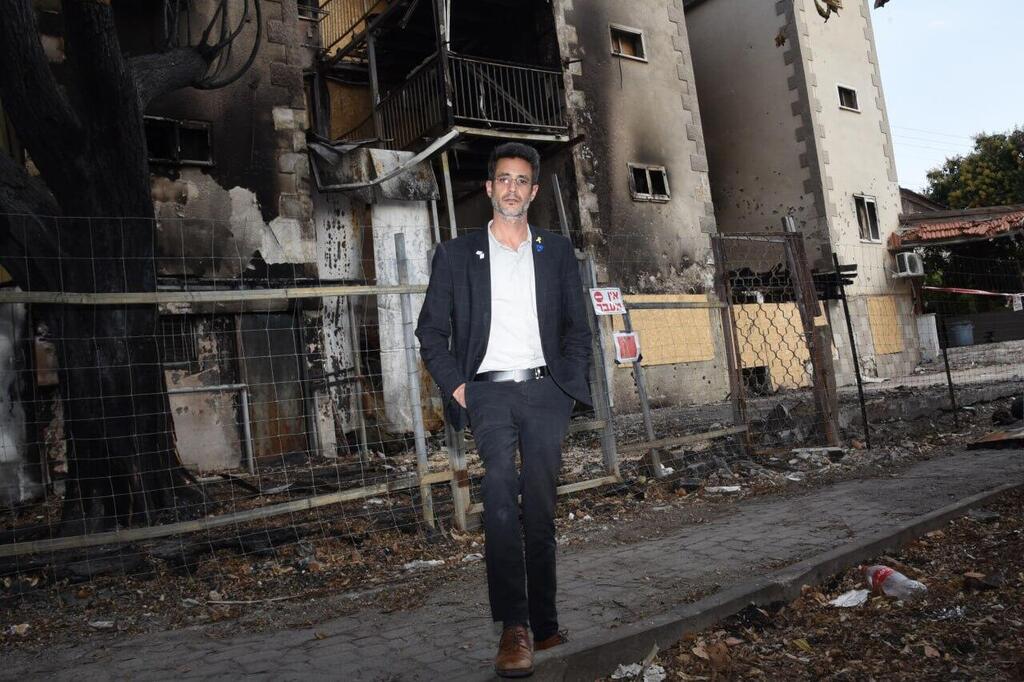The government took nearly a year to decide that returning northern residents to their homes is a key objective of the war. Despite reports of cease-fire talks and even if an agreement is reached - the process of returning residents evacuated from 42 communities near the Lebanese border, as well as thousands who left surrounding areas, is long and complex. This requires more than declarations and decisions to ensure the threat to life in the north is removed.
Rocket launches from Lebanon
(Video: Shay Eiluz)
1) Buffer zone - For years, the luxurious homes built in Lebanon up to the border served as a warning sign for northern residents. During the war, it became evident that dozens of villages along the border were used as forward attack positions for Hezbollah’s plan to invade the north and massacre tens of thousands of residents who would find themselves almost defenseless. Most of these homes were destroyed in recent weeks by a ground operation led by five divisions.
However, there is concern in the north that once the war ends, Hezbollah will rebuild the ruins and re-establish the terror villages within years. Without a security perimeter, similar to the deep buffer zone at the Gaza border, the contact line will again become an area where no responsible parent would allow their children to play in front of terrorist shooting and observation positions. Beyond the perimeter, a comprehensive protective envelope using technological systems and soldiers is needed.
2) Rehabilitation of Communities - During the war, evacuated authorities gathered data on extensive damages to infrastructure, buildings, educational institutions, and public areas caused by Hezbollah fire and IDF movements. Community leaders demand more than cosmetic repairs, like completely resurfacing roads, while the Property Tax Authority insists on localized repairs. Added to these are the damages of time, not recognized as war damages, which the state has never been required to address for dozens of communities that have been inactive for over a year.
Residents also need compensation for expected expenses in moving from temporary homes and repairing damaged homes and their contents. "It's still not decided who's responsible for what," says Moshe Davidovich, head of the Mateh Asher Council and chairman of the confrontation line forum. "Various administrations have been set up in government ministries, but they are all dealing with everything—and doing nothing. The rehabilitation work has not yet begun."
3) Psychological recovery - This won't happen overnight, but displaced northerners will soon find themselves together again and will need to rebuild the community they lost. They will need resilience and hope. Students will return to classes, some having not studied at all, others having spent the year on Zoom, and some having learned nearly as usual. All of these students will sit in one class with many gaps, and they will all need to reach the finish line in 12th grade with equal knowledge and skills, like all other children in Israel.
Additionally, the children have experienced prolonged trauma over the past months and need healing. Parental authority, damaged by prolonged stays in small hotel rooms, will also need rehabilitation. Returning home will restore a significant part of the extinguished spirit, and time will help, but those returning to the north need professional emotional and psychological support.
4) Restoration of northern communities - Residents who found themselves absorbed in central cities are no longer surprised by the vast disparities they encountered since arriving in the big city. They discovered that for decades, governments invested enormous sums in developing southern and central communities in education, health, leisure, and infrastructure. To bring them home, the state must prove that they deserve similar conditions in the northern periphery.
Avihai Stern, mayor of Kiryat Shmona, whose residents make up about 40% of the evacuees, says: "My residents have tasted what accessibility to healthcare services is, jobs with above-average salaries, education with almost unlimited possibilities, and developed public transportation. The state cannot expect them to return to restoration efforts that seek to restore the reality that was here on October 6. The message to residents must be upgrading and developing the area, not just restoring it. In the end, even those who fell in love with the advantages of life in central Israel know there's nothing like the beautiful life we had in the north."
5) Recognition and a future - While political considerations continue to influence decision-makers, and in a reality where no one knows how much money will actually arrive and how it will be distributed—government investments and genuine steps to develop growth engines will be required. Residents will need to move north with values that may have been forgotten: the Zionist challenge of settling the state’s borders returns, and the furrow of the plow must deepen in every clod of borderland soil.
In the new contract between the state and its citizens, it will be clear to both sides that living near the border comes with costs, and no layers of protection and security can guarantee peace in the communities. Pioneers in the north need to be honored, appreciated, and given conditions for a better life with a future. Therefore, in addition to the incentives needed to bring strong populations back north, the state will have to provide them with unique benefits and develop economic and environmental initiatives that contribute to developing the area and will be part of the new story to be written after the war ends.
Get the Ynetnews app on your smartphone:






